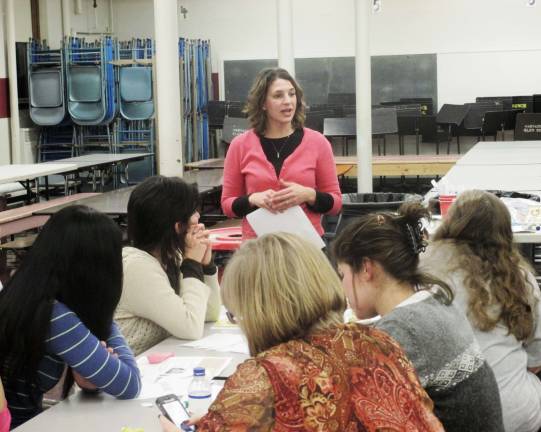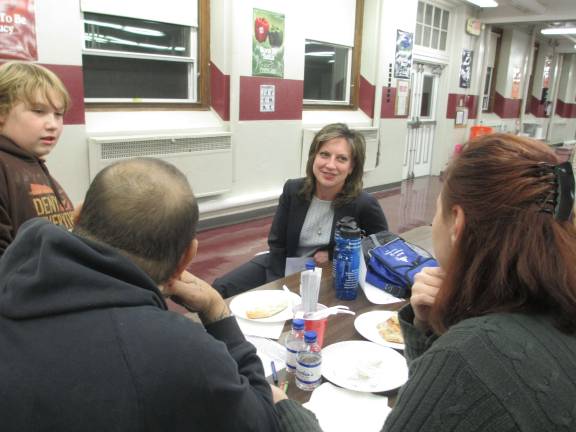Wantage school builds bonds between students and parents


WANTAGE — The Center for Prevention and Counseling demonstrated ways for parents to get involved in their children's lives and in their schools on Wednesday, Dec. 4.
The program was sponsored by the Sussex-Wantage Municipal Alliance, the Sussex-Wantage PTO and Sussex-Wantage PRIDE.
“It’s very important that the school and parents work together to support children in all different ways,” said Jeanne Apyryasz, superintendent of the Sussex-Wantage Regional School District. “I’m hoping these kinds of programs build bonds between the school and parents. My goal in being present is to show support for our students, let the parents know I am here to help them and answer any questions they have about the educational system, and talk with parents about what they can do to support their children.”
Becky Carlson, assistant director at the Center for Prevention and Counseling said substance abuse isn’t the only thing the center covers.
“We address bullying, positive family building, counseling, etc,” she said.
The program illustrated the “40 Asset Approach” to healthy youth development identified by Search Institute, an organization associated with the Center for Prevention and Counseling.
“The more kids have of these 40 assets, the more likely they are to do better in school and in life, and the less likely they are to engage in risky behaviors,” Carlson said. “A few of the assets are reading for pleasure, having positive family communication and having a caring school climate. The goal is to provide knowledge to our audience so that they can understand a little bit better about how to improve the number of assets that their children have.”
Carlson said 25 percent of kids are affected negatively at home by substance abuse, and the average age of first-time alcohol usage is 11.9-years old.
According to the Center, youth are more likely to grow up healthy when their parents are involved in their education. When parents stay involved, statistics show young people are motivated to do well in school, more committed to pursuing a post-high school education, less likely to use alcohol and other drugs, become a bully, or engage in anti-social behaviors, and more likely to be involved in positive school activities.
While the Sussex Middle School volunteer Builders Club, run by middle school math and language arts teacher Maureen DeFalco, babysat the children of the parents, moms and dads spent time with Center representatives learning how to “work with their kids in positive ways,” Carlson said.
Parental involvement in school is one of the external developmental support assets. Echoing Search Institute statistics from a 2010 survey, Carlson said only 33 percent of kids feel that parents are actively involved in helping a young person succeed in school.
“Other ways to get involved with your kid’s life is through listening to your child, eating meals together and taking time to do activities together,” she said.
To get parents talking with their kids, everyone received a slip of paper with a question they could ask their kids, geared at 8-12-year-olds, and initiate conversation with such as, ‘If you could invent a machine to do something in your life, what would that machine do?’ and ‘If you could eat ice-cream for every meal, what flavor would you choose?’
“I love this approach,” Carlson said. “Having good communication with kids and keeping them involved in extra-curricular activities is important and really does help children stay away from alcohol and drugs.”
Melissa Sneider of Wantage attended the event with her son, Wyatt Sneider, 10, who is a grader at the Wantage School.
She believes parental involvement is essential: “How can you raise well-behaved kids when you’re not involved in their lives?”
This is Wyatt’s third year involved with the school’s ski club and his second year in chorus. Wyatt also just finished a fall bowling season.